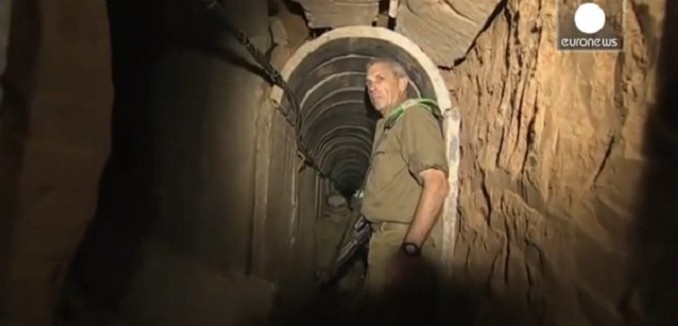The Associated Press assessed last week that Hamas has “been hit by the worst economic crisis since seizing the [Gaza Strip] seven years ago,” after a series of bad geopolitical gambles – most prominently its alignment with the now-decapitated Egyptian Muslim Brotherhood, but also various miscalculations involving Iran and its allies – left the group regionally isolated.
Hamas government employees have complained publicly about getting only partial salaries for the past four months. Bus drivers have staged a strike over soaring fuel prices. Laborers have lost jobs as construction has dried up. Hamas’ own surveys show its popularity plummeting.
“I never experienced a situation worse than this one,” said Ahmed Zeitouniya, 32, who has been walking to his job in the Culture Ministry because he can no longer afford $1 in bus fares and is in debt to the neighborhood grocery and his oldest son’s kindergarten.
The Egyptian army, which blames Hamas for facilitating the movement of jihadist personnel and materials into the Egypt-controlled Sinai, has for over a year been engaged in systematically destroying the smuggling tunnels linking the Sinai with Gaza. An announcement this week had the number of destroyed tunnels, which had served as Hamas’s economic lifeline to the outside world, at 1,370.
The Hamas government lost nearly two-thirds of its revenue as a result, said Omar Shaban, a Gaza economist. With the tunnels, Hamas earned about $500 million a year — of an annual budget of just under $900 million — in taxes on the Egyptian imports, said Shaban.
The Times of Israel reported earlier this week that Hamas was scrambling to reestablish strained ties with Iran, and that the Iranians were receptive to bring the terror group back into the fold. U.S. analysts have been increasingly vocal in suggesting that Western policymakers ought to avail themselves of a narrow window of opportunity to deal Hamas a financial death blow by cutting off its funding from overseas and from the U.S.-backed Palestinian Authority (PA) that controls the West Bank.
[Photo: euronews / YouTube]




